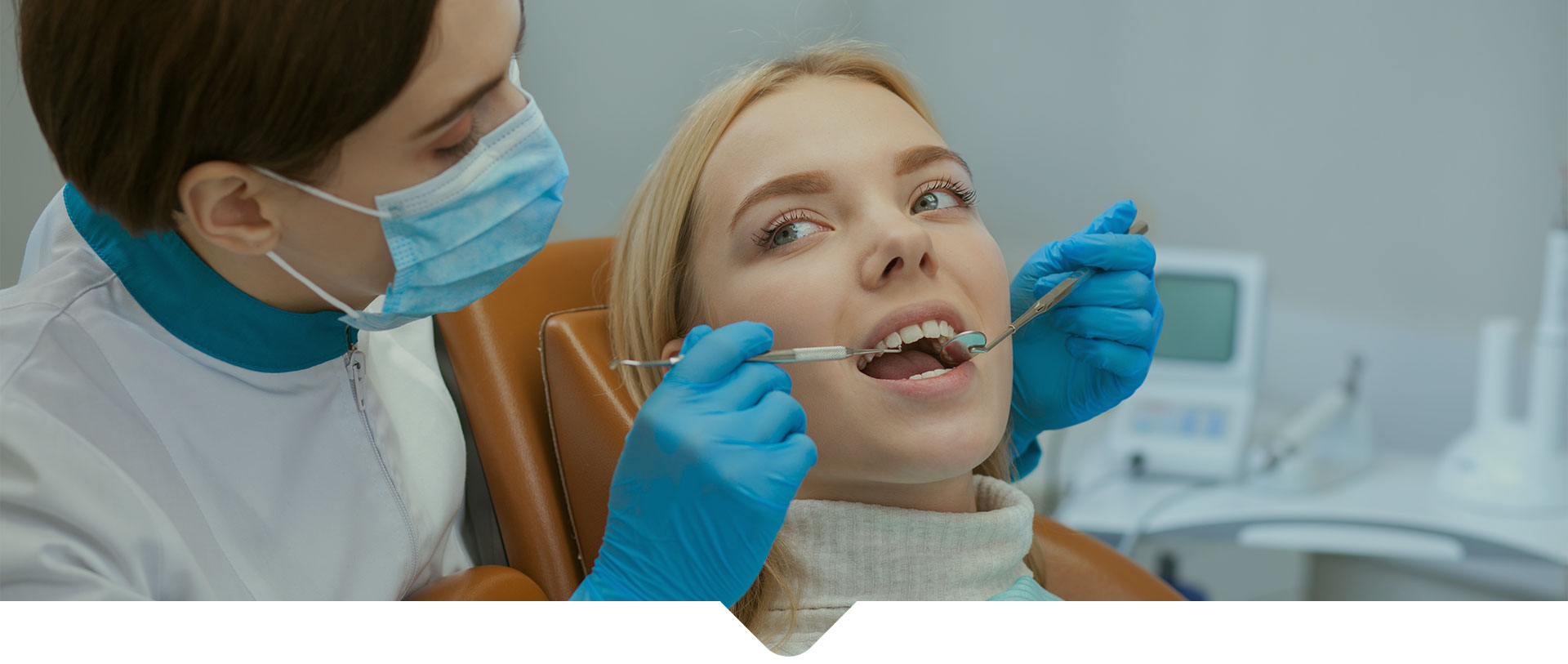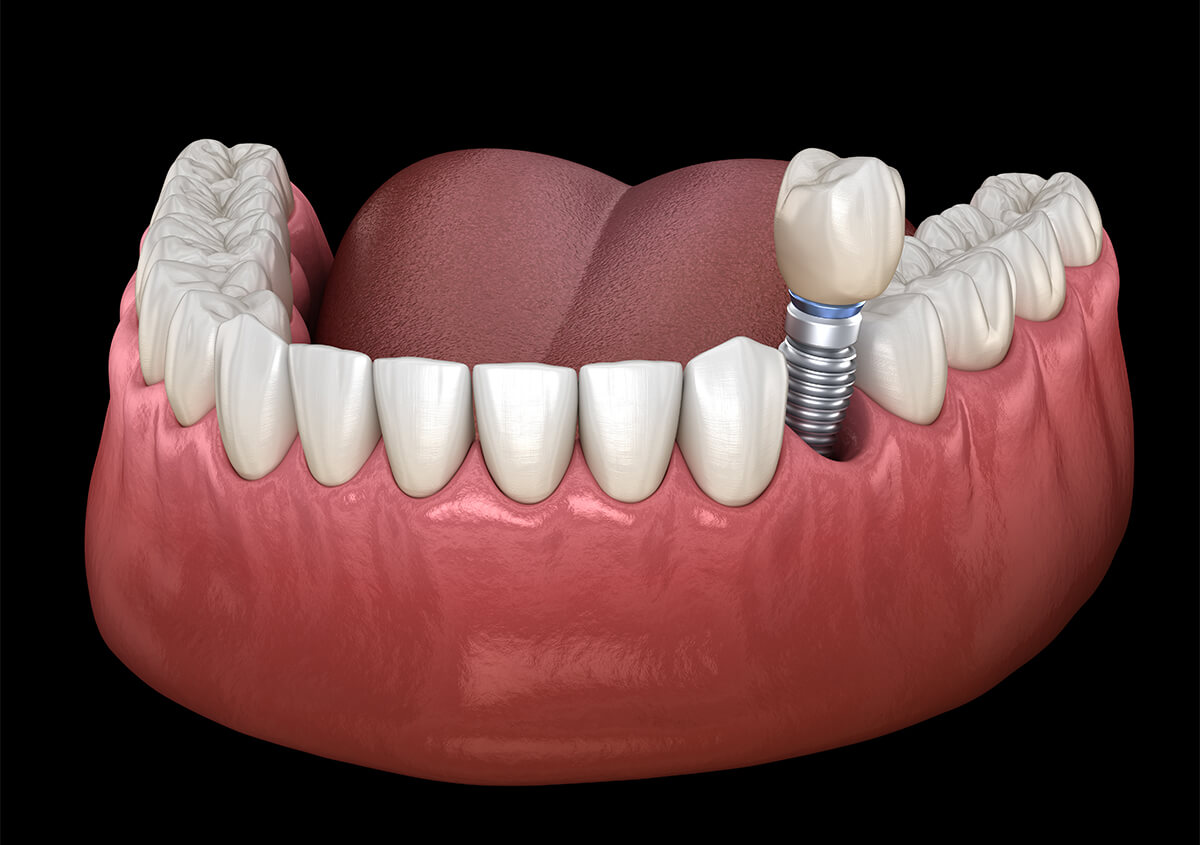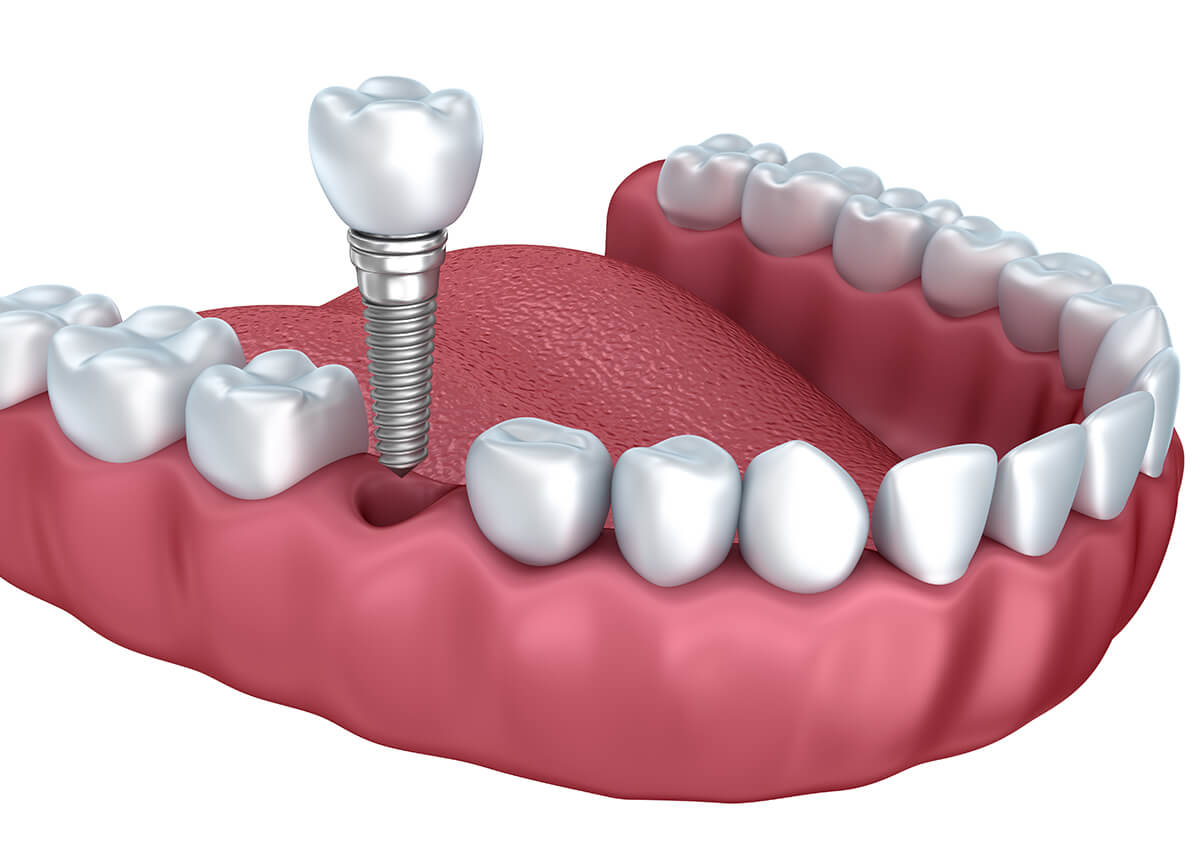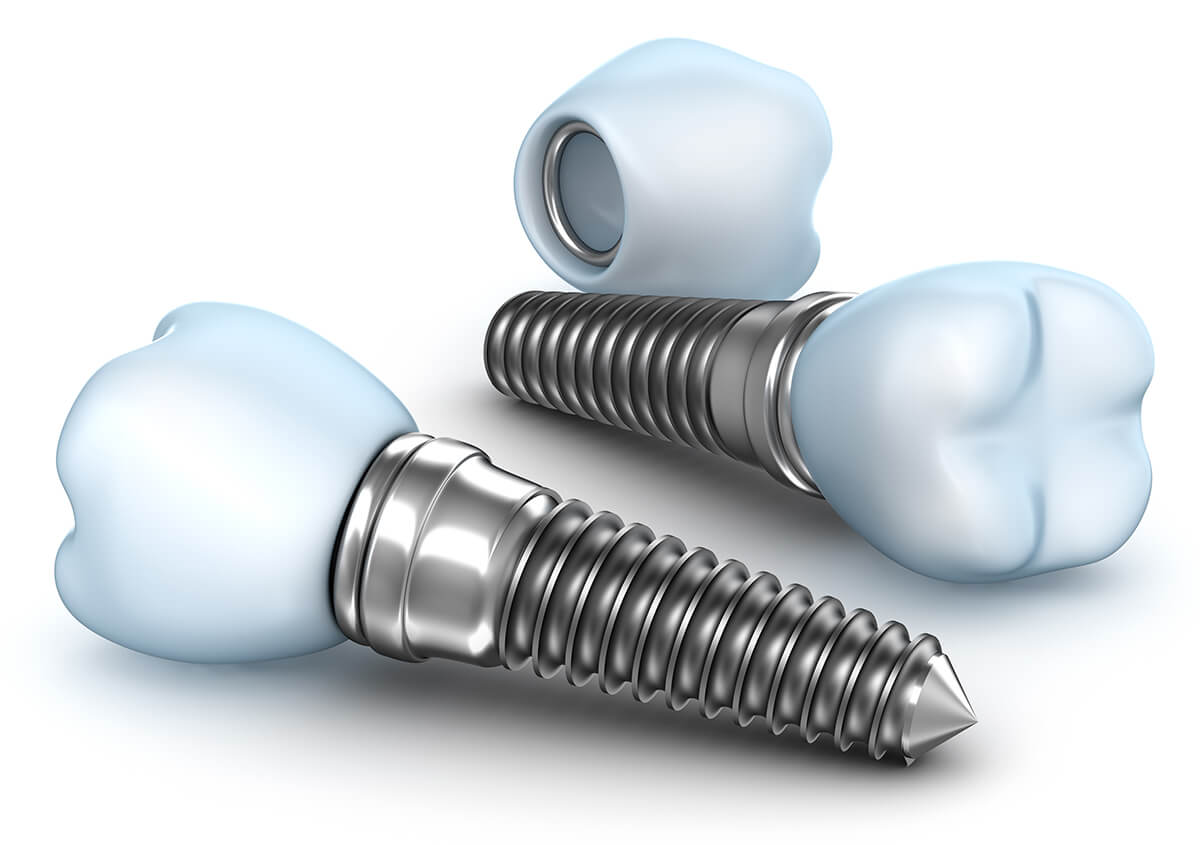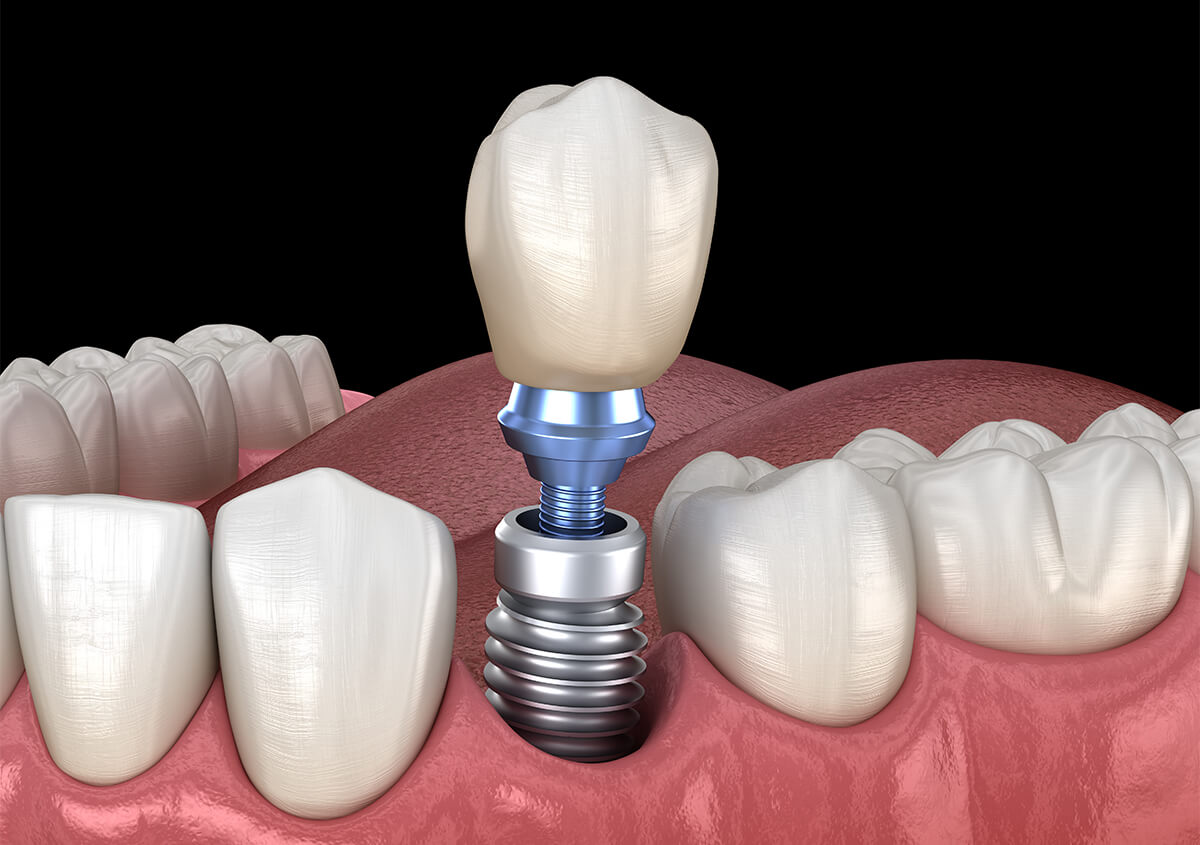Comprehensive dental implants services, guidance under one roof!
Since 2006, Dr. Sanjay Dhir has placed 2,000-plus dental implants. So, he knows a little something about this “standard” in the replacement of missing teeth. His expertise also shows in advanced credentials from the International Congress of Oral Implantology.
The ICOI is the world’s largest organization dedicated to implants and continuing education associated with this next-generation treatment. It comprises general dentists, lab techs, industry researchers, and specialists in more than 90 countries. As a fellow of the ICOI, Dr. Dhir has demonstrated excellence in the successful placement of implants. That provides peace of mind to patients in San Diego, California, La Jolla, and the surrounding area. The quality of their new teeth, their mouths’ safety, and overall health are in great hands.
Dr. Dhir does it all
Due to the aforementioned ongoing training and experience, the practice of Sanjay Dhir, DDS, is equipped to offer all aspects of the implants process and related treatments. Other general dentists and dental providers may only provide one element of the process, such as extractions or restoring the implant after it has been placed with a bridge or denture, for instance. At our practice, even the most complex treatments are handled skillfully. We don’t need to refer you to a costly specialist at another practice for the actual placement of the implant.
Likewise, Dr. Dhir has experience and skills in “preparatory” treatments like sinus augmentation and bone grafting. Due to our comprehensive and sophisticated services, we can also extract teeth and place new teeth (dentures) during the same visit. Immediate dentures involve wearing a provisional denture as the extraction sites heal. Once the permanent denture is completed and tissues have healed, usually around four to six weeks post-extraction, the temporary is removed, and the denture that conforms to your mouth is placed. These dentures can be snapped or otherwise attached into place by way of implants in the jaw.
Of course, implants are not merely used to replace all the teeth in an upper or lower arch or jaw. A single implant may be placed in the jawbone to support one replacement tooth. Strategically-placed implants can also be used to retain several missing teeth or groups of teeth. Regardless of if you need to get one new tooth, many new teeth, or no longer have any teeth, dental implants essentially work in the same way; the implant is made from a material that naturally fuses or integrates to the surrounding bone in the jaw. Once the implants have connected to the bone, it is attached to the crowns, bridges, or dentures. Then, implants can function like roots to hold the teeth in place.
Designed and built to last
Implant-retained teeth can last a lifetime with proper care. It is essential to clean the gums around the new tooth like you would your natural teeth. After all, implants can develop a form of gum disease called “peri-implantitis.” So, while artificial teeth don’t decay like natural tooth material, implant-retained teeth can be threatened by harmful bacteria and destructive plaque that inflames the tissues about the implants. As with “regular” gum disease, peri-implantitis breaks down the connective tissue and supporting bone.
At Sanjay Dhir, DDS, we are here for you at every stage to support the lifelong health of your smile. Call us at (858) 358-5801 to schedule your appointment with Dr. Dhir. We will evaluate your mouth, discuss preferences with you, and build the best treatment plan to suit the “whole you” – not just your teeth and gums!
Dental Implants

Dental implants are titanium roots, that are replaced with in the jawbone to resemble a tooth or group of teeth. A screw is inserted through the gums and into the jawbone. A porcelain crown is then attached to the screw to become the new tooth or teeth. They can be used to support dental prosthesis including crowns, dentures, and bridges. Today’s treatments are so natural looking, no one will know you had surgery. There’s approximately a 95% success rate for all implants. With modern advances in dentistry, some implants can be restored immediately with life like all porcelain crowns. For more details ask your dentist.
FAQ
Implants are the most preferred tooth replacement method as they look, feel, and function almost like real teeth. Unlike most other replacement methods, they enable you to eat, talk, smile, and laugh naturally without clicking, slipping, or sliding. They help retain your facial structure despite the missing teeth by maintaining your jawbone.
A healthy person should be able to get implants. Dr. Sanjay Dhir will determine your suitability for the procedure by evaluating your oral health and the quality and quantity of your jawbone.
The success of implants depends mainly on the quantity and quality of your jawbone. If you don’t have enough bone, Sanjay Dhir, DDS, may carry out a bone graft to prepare your mouth for implants.
Most general dentists and dental providers offer only one element of the implant procedure, such as tooth extraction or restoring the implant after it has been placed with a denture or bridge, and refer patients to other specialists for the rest of the procedure. However, Sanjay Dhir, DDS, is specially trained and experienced in the complete implant procedure and can offer all aspects of this treatment right here in our practice. We don’t need to refer you to costly specialists at other practices.
Dr. Dhir is also skilled and experienced in treatments like sinus augmentation and bone grafting that are necessary to prepare some patients for implants. So, even those procedures can be carried out in our office.
Your implants can last for life if you take proper care of them, just like you take care of your natural teeth. Daily brushing and flossing and regular visits to the dentist for checkups and cleanings are essential. If not, implants can develop a form of gum disease known as ‘peri-implantitis’, which will break down the connective tissue and supporting bone of teeth, the same way it happens with regular gum disease. Although implants won’t decay like natural teeth, implant-retained teeth can be threatened by harmful bacteria and destructive plaque, causing infections and inflammation in the tissues surrounding the implants.


